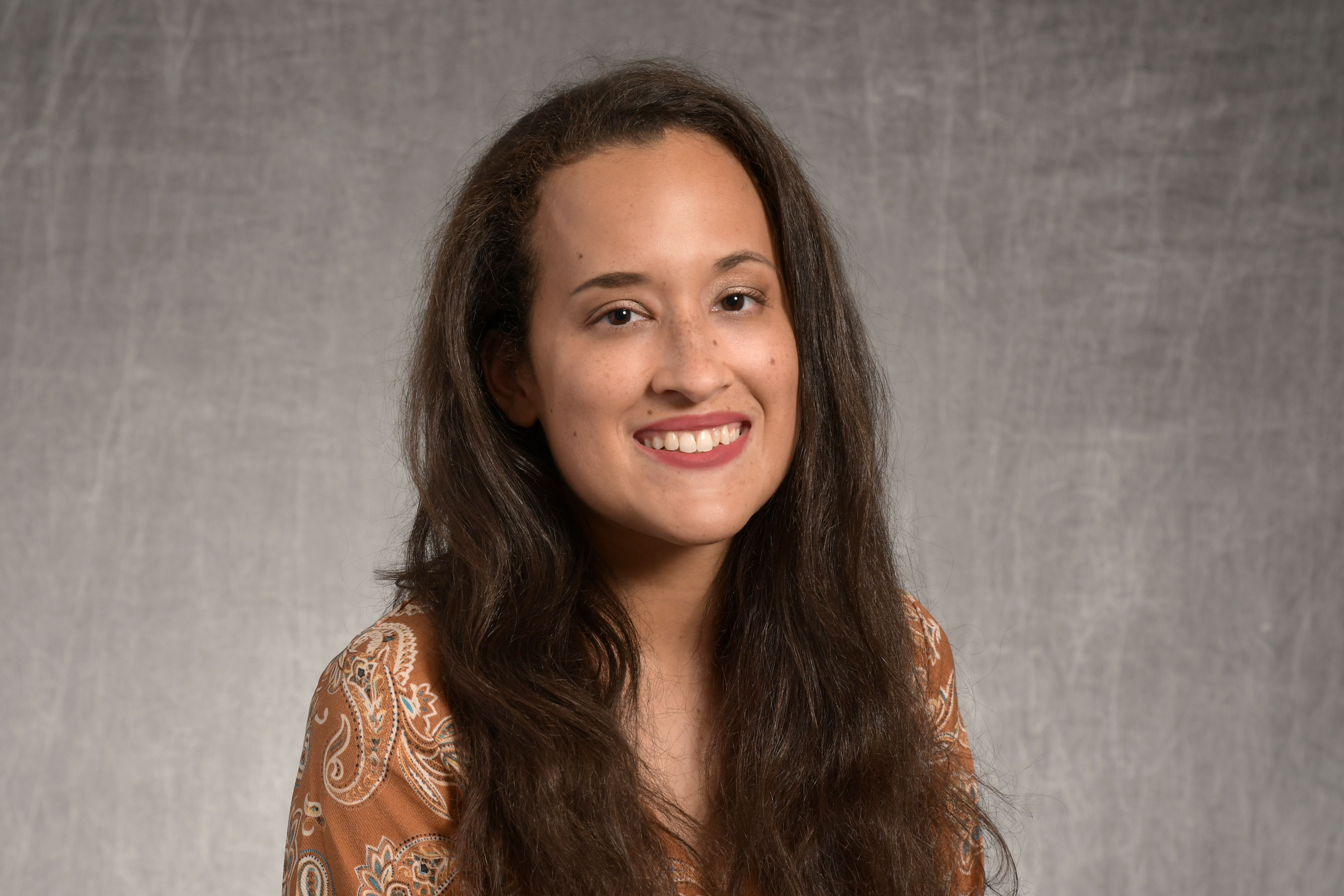Friday, Nov 22, 2019
Dr. Aubrey Daniels joins Rider's Department of Graduate Education, Leadership and Counseling
by Keith Fernbach
Dr. Aubrey Daniels joined Rider's Department of Graduate Education, Leadership and Counseling as an acting assistant professor this fall. Daniels wanted to become a professor to contribute to her field's understanding of trauma-informed care.
During graduate school at the University of Pennsylvania, where she earned dual master’s degrees in counseling and mental health services, and professional counseling, Daniels began to entertain the idea of becoming a professor.
“I still wanted to continue to counsel people, but I realized that teaching is also an important part of the counseling field,” she says. “My area of interest was trauma-informed care, and there weren’t a lot of faculty members with experience in that area. I decided to earn a Ph.D. in order to give back to the field in that capacity.”
Daniels made it a priority to gain clinical experience in conjunction with every step of her education. As an undergraduate at Seton Hall, she interned at a facility called Social Clubhouse, where she had an opportunity to lead groups and get her first exposure to counseling.
While in her master’s program, she did similar work at a community mental health center, and at the Children’s Crisis Treatment Center, where she gained her first experience working with children, adolescents and families who were experiencing different forms of trauma.
“That was really pivotal for me, because that’s when I learned what trauma-informed care was, what the different types of trauma were, and how to treat it,” she says. “It really helped me to move forward clinically and as a teacher.”
When she was in her Ph.D. program at Penn State, Daniels served multiple roles. She directed operations of the on-campus training clinic, where she assisted students who were doing their practicums and internships, as well as doing crisis intervention work and working with her own clients. She also worked at a school where she led groups of children from kindergarten through eighth grade, and worked at the on-campus career center
“I wanted to have as many clinical experiences as possible so that I could take that knowledge with me moving forward after I graduated,” she says.
Daniels' dissertation is about complex trauma. It is an ongoing event that occurs between the ages of 0-18 and has the ability to impact development, one’s psycho-social functioning and his or her emotional well-being. Examples of complex trauma can include community violence, divorce in a family, absence of caregiver or substance abuse.
She says many people experience these types of traumas without even being aware of it.
“As mental health professionals, we need to approach people in a way that is trauma informed,” she says. “This includes using language like, ‘What happened to you?’ rather than, ‘What’s wrong with you?’ We want to be very open with our questions, sensitive and delicate with clients.”
For her dissertation, she conducted a retrospective study aiming to understand what led young adults to be resilient in spite of complex trauma they had experienced in the past.
“The piece that I was looking at was family environment and family cohesion, and I was able to find that it actually did lead to resilience, despite whatever complex trauma they were experiencing,” she says.
Looking ahead, she hopes to continue researching potential factors that could impact the resilience of young adults who have been impacted by trauma.

